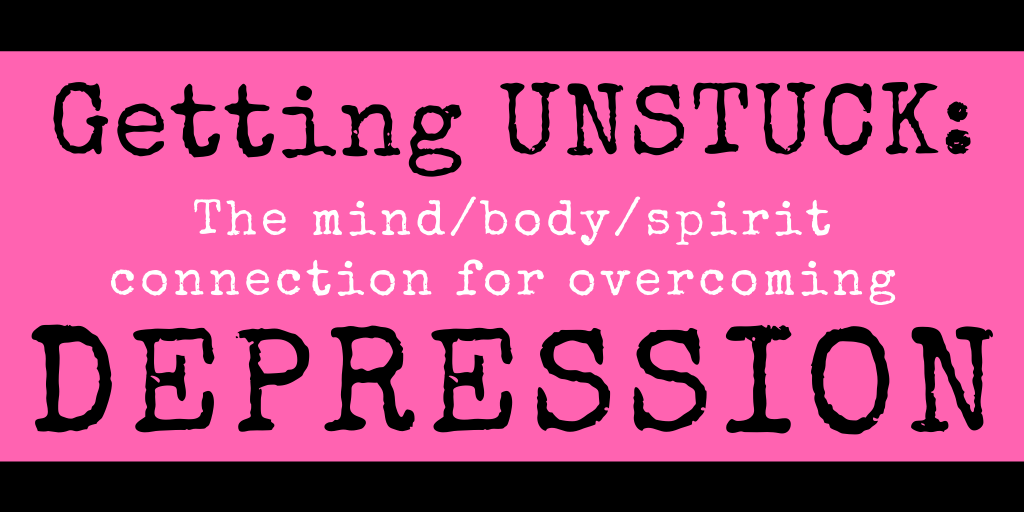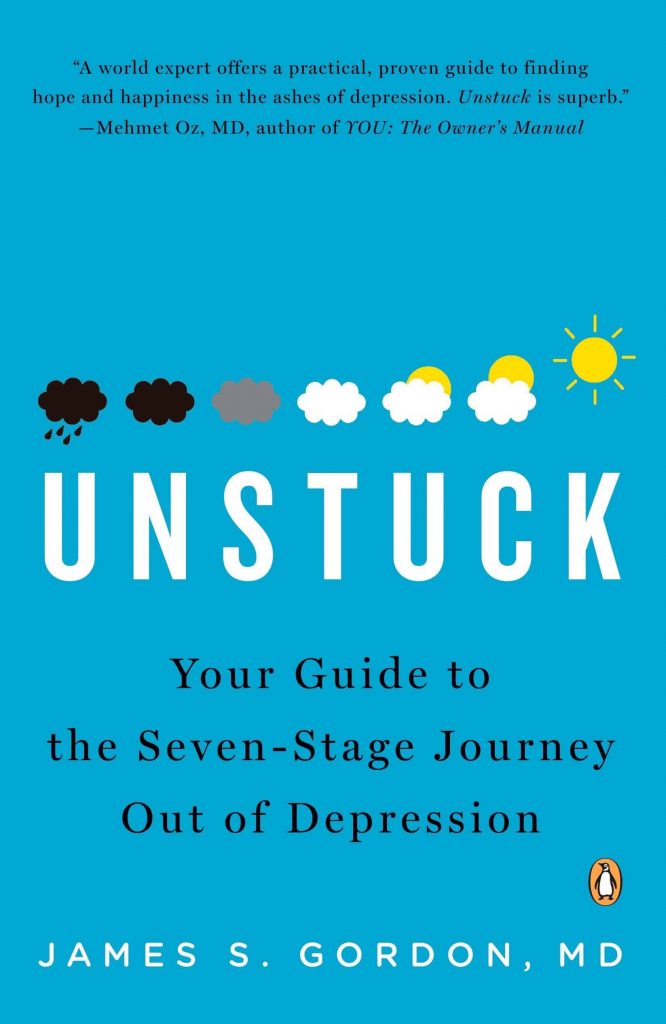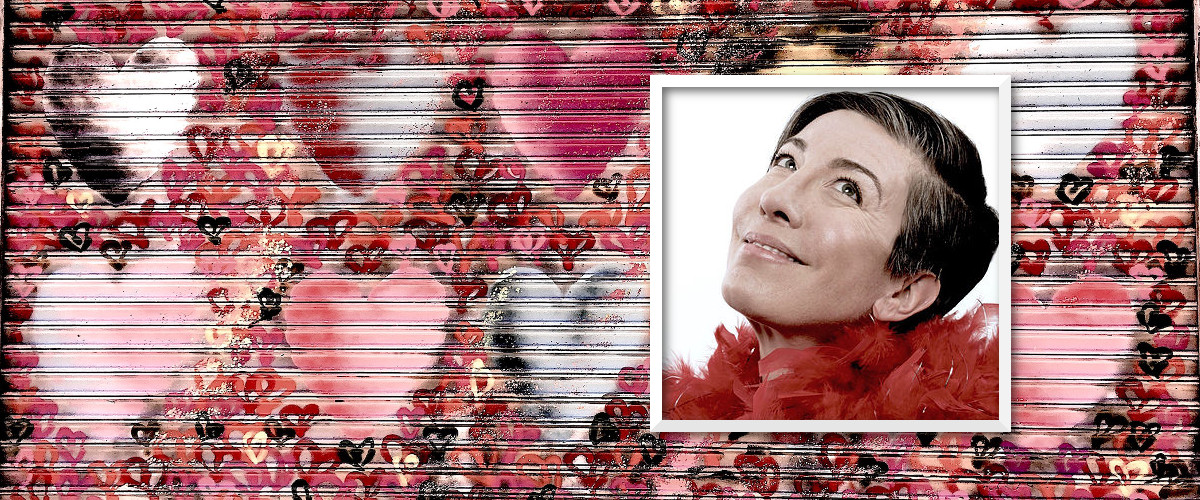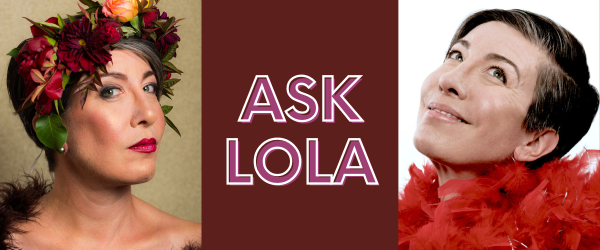It’s late winter and in the Northern Hemisphere — the time when many of us sink into the deepest winter funk. To counter this seasonal slide, I recommend a terrific book: Unstuck: Your Guide to the Seven-Stage Journey Out of Depression, by Dr. James S. Gordon.
Gordon is a Harvard-trained psychiatrist who has studied depression for more than forty years. His book provides a comprehensive framework for understanding how depression works, including the mind-body-spirit connection, as well as a blueprint for moving through sad spells. I’ve used Gordon’s techniques many times in my life, always with positive results.
Anti- Antidepressants?
I recommend this book wholeheartedly, but with one major warning: Gordon opens this book by arguing that antidepressants should be used only as a last resort. From his research, Gordon concludes that SSRis may alleviate one’s symptoms, but do nothing to re-regulate one’s brain chemistry. Also, he argues, they don’t address any underlying sources of distress.
Now, as it happens, several people I love, including my life partner, rely on antidepressants. I know folks who might not have survived suicidal episodes without pharmaceutical intervention, so I’d never be one to say antidepressants are bad medicine. However, I do think Gordon’s arguments are worth considering for anyone looking to make an informed decision about one’s mental health care.
Wherever you come down on the antidepressant controversy, the rest of the book is filled with practical advice applicable to everyone, so I encourage you to take what works for you and leave the rest.

Mind-Body Connection
Gordon offers two key insights. The first is that regardless of why we might be depressed — whether cyclical sadness runs in our family or we’re responding to external situations such as the winter blues or losing our job or a loved one or we don’t really have a “good reason” we can think of — sadness doesn’t just live in our minds. Depression permeates every aspect of our existence.
To work one’s way out of depression, Gordon’s program can be thought of as a series of concentric circles radiating outward. Gordon is a medical doctor, first and foremost, so he begins by advising getting a full medical exam to look for underlying conditions that might be contributing to low energy or depression, including infection, diabetes, low thyroid, etc. He also recommends an evaluation of any depressive prescriptions you might be taking, including sleeping pills, birth control, cortisone, among many others.
Next, he emphasizes the importance of good nutrition and staying away from empty calories. He recommends fruits and vegetables, lean protein and fiber and micronutrients to make sure that our bodies have everything they need to thrive. Then, he stresses exercise and healing movement, including dance, meditation and yoga, along with non-Western modalities including acupuncture and herbal therapies.
Once we’ve tended to our physical selves, next it’s time to turn to our psychic wellbeing. Gordon defines spirituality as not necessarily as a religious practice but an understanding of being a part of something bigger than oneself — a feeling of purpose, dignity and worth. To nurture the spirit, Gordon recommends helping those in need for several reasons. First, it puts our own pain into perspective. We’re reminded that heartache and pain is universal, connecting us to our humanity, decreasing feelings of isolation and shame. And finally, doing good feels good. Volunteering, babysitting, pet walking, gardening, and cooking for others are all excellent ways to get out of our own heads and connect with the wider world.
The Blues Is A Friend of Mine
Dr. Gordon’s other key observation is that we can and should treat depression as a gift. Depression has tremendous potential to tell us what is most important to us in life, where we feel disconnected or harmed or lacking. Only by setting out on the journey of learning what depression has to teach us can we fully integrate and heal.
If, for example, we’re sad because our grandfather recently died, rather distracting ourselves with substances or video games, grief can connect us to our heart’s desire. Spending time with that grief allows us to honor, say, the unconditional love he gave us during his life, and express our gratitude for him. Or maybe our grandfather was more difficult and distant, and we’re mourning the absence of love we never got and always longed for. We can use the advent of his passing to commit to finding gentle paternal care from other sources in our lives.
Sad spells are, indeed, a fact of life. But they don’t need to drain us of life. Gordon’s book illuminates how working through depression with self-love and care can improve our attitudes, relationships, physical health, and lives in rich, meaningful, fulfilling ways.
Until next time, be sweet to yourself.
Lola D.

—
Lola Davina is a longtime veteran of the sex industry and author of Thriving in Sex Work: Sex Work and Money, her followup to the formative Thriving in Sex Work: Heartfelt Advice for Staying Sane in the Sex Industry. You can get the audio version of Sex Work and Money via Awesound here. Contact Davina at Lola.Davina@ynotcam.com and visit her on Twitter at @Lola_Davina.
Image of Lola Davina courtesy Pat Mazzera.









